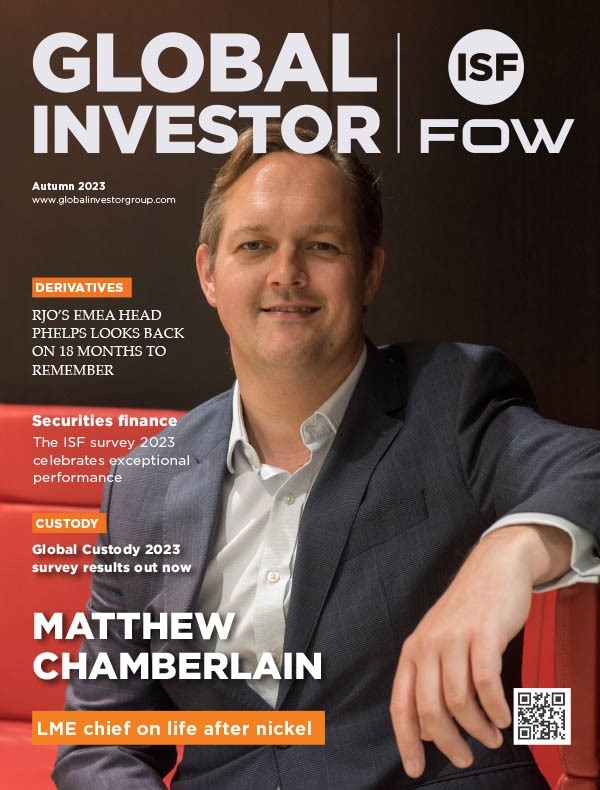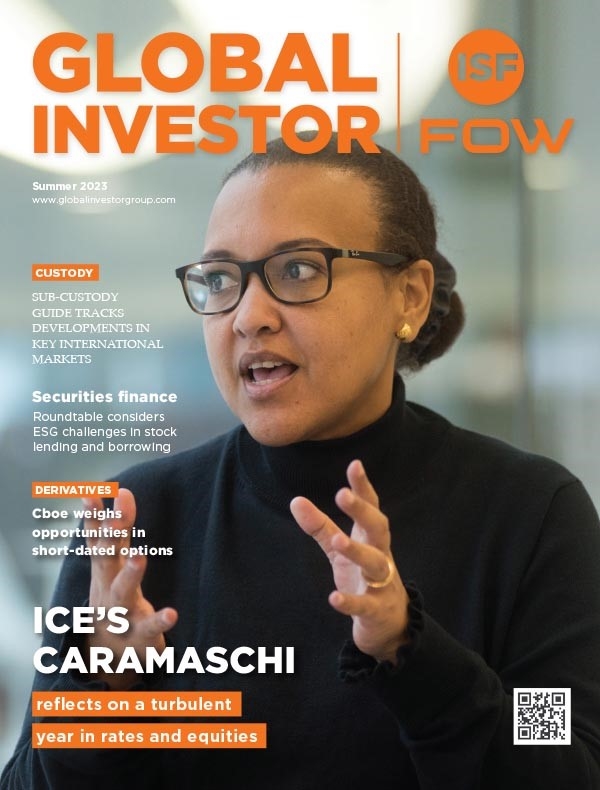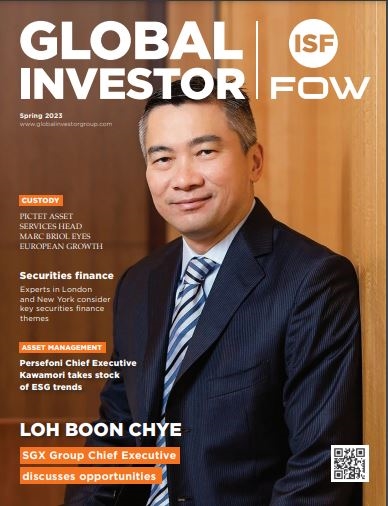Shaping the game
 Isf: Humayon, you have been a strong proponent of Islamic finance and a prominent figure in bringing Western institutions to Islamic banking through Shariah advisory services you offer. What first attracted you to the industry?
Isf: Humayon, you have been a strong proponent of Islamic finance and a prominent figure in bringing Western institutions to Islamic banking through Shariah advisory services you offer. What first attracted you to the industry?
Humayon Dar: I belong to the second generation of Islamic economists – those who were formally trained by the pioneers of Islamic economics, banking and finance. I am a graduate of International Islamic University Islambad in Pakistan, which was the first university to teach Islamic finance. Its objective was to set up a new generation of graduates well-versed in international finance and Islamic law. At that time the university was actually located in Faisal mosque, an environment I liked very much. That was the time that I decided to enter into Islamic finance, which is a fusion of Western finance and Islamic law.
Isf: In 2004, you left your academic career to join Deutsche Bank, why did you decide to enter the market?
HD: I developed and ran the firstever postgraduate programme in Islamic finance at Loughborough University for five years. That was an excellent experiment but soon I realized teaching Islamic finance was like being the manager of a football team. It is undoubtedly very important to educate, but it is rewarding only in the longer run, if my team is down by one point I can't do anything in the short run except shout from the sidelines. So I decided to be part of the industry. I wanted to change the industry to my liking, to my understanding of Islam and of economics. And I wasn't disappointed. From day one at Dar Al Istithmar, a subsidiary of Deutsche Bank, I was involved in some very innovative products.
Isf: What did you work on at Dar Al Istithmar?
HD: We developed the first series of fully recognized Shariah compliant structured products. We were also involved in advising some external clients on hedge funds and other alternative asset classes. There has traditionally been a major emphasis on equity in Islamic finance. But when you talk about other asset classes, the choice for investors is unfortunately very limited. This is because of the nature of alternative asset classes, which have problems from a Shariah viewpoint.
Hedge funds have problems because they invest in a number of derivative structures, and they take short positions. And a global arbitrage or distressed model is reliant on leverage, which is primarily based on interest. Interest, or Riba, is not allowed in Shariah. Private equity also has a number of characteristics, which are interest-based, and with real estate financing a lot of leveraging takes place.
So we came up with a derivative structure, which allows Islamic investors to invest in something Shariah compliant, but have exposure to the risk-return profile of something not Shariah compliant. This allows Islamic investors to have more choice.
Isf: Why did you leave Dar Al Istithmar to join BMB Islamic?
HD: That's an interesting question. Although I am a champion of close cooperation between Islamic financial institutions and Western conventional financial institutions, I believe that for the authentic development of Islamic finance the lead role should be taken by Islamic financial institutions.
Most Western institutions are involved in Islamic finance for economic reasons only. There is nothing wrong with that. They are opportunistic organisations, and where they can find an opportunity, they should get involved. But the lead role should be taken by Islamic institutions like BMB.
Also, somehow an increasing number of high net-worth Islamic individuals and families prefer Islamic institutions to conventional institutions. Even if they know that actually the conventional institutions are managing their money very well, they feel more comfortable with Islamic institutions.
It is a new phenomenon, and I am a Shariah technician, I sit on the Shariah boards of a few institutions. For me working as an employee of a Western institution, on a personal level, was not an ideal situation. BMB is owned by Muslims, with some leading members of some royal families. As part of BMB my own personal credibility has improved.
But I enjoyed my stay at Dar Al Istithmar very much. I worked with Geert Bossuyt, the head of the Shariah structuring team at Deutsche. He is probably one of the finest brains involved in Islamic finance, and he's very sincere in Islamic finance. So I do not have any problems with Deutsche as an institution, or the individuals working there. I very much enjoyed working there.
Isf: You have said before that the Islamic finance market needs to integrate with the conventional finance market. Why is this?
HD: Some observers say that Islamic banking and finance should remain independent of conventional banking and finance. But this is not in line with the market reality – Islamic finance is very much a part of conventional finance.
If Islamic finance starts to develop itself completely independently of conventional finance then Islamic finance will collapse, it doesn't have that kind of muscle. It is still a relatively small industry, worth about $1 trillion, and if it does not benefit from conventional financial technology it will be left behind.
We are promoting this integration at BMB Islamic. We're in the process of setting up what we call a global distribution platform, which attempts to bring the top alternative asset funds to the Islamic market – all the funds on our platform belong to the top 10% of the hedge fund, private equity and real estate industries.
Isf: The rapidly growing Sukuk bond market has been grabbing global attention over the past few years. When will a liquid secondary market emerge?
HD: Active trading is all about size. My understanding is that this will begin when the Sukuk reaches the $200 billion mark. Right now it's at about $87 billion, and seeing 70% to 80% growth per year. It could be in two or three years.
Volume is most important, but another issue here is the lack of regulation on Sukuk and the related infrastructure. Here I will say that the Financial Services Authority (FSA) and the HM Treasury are going to play an important role.
I like the English approach to Islamic banking and finance, it's very thorough. When the HM Treasury, the FSA and the Bank of England were working on Islamic mortgages they took a lot of time, but the end product was excellent, a very comprehensive document. I don't believe any Islamic regulator has come up with such a beautiful document.
And now the FSA and the HM Treasury are working on the Sukuk. I believe once these guidelines come out and a Sukuk is issued in the UK using that framework – that will be an important determinant of the Sukuk market developing into a secondary market.
Isf: A leading Shariah scholar, Sheikh Taqi Usmani, recently raised concerns about the Shariah compliance of many Sukuk. What were these?
HD: Sheikh Taqi Usmani believes there is a problem with Shariah in some features of structures based on Mudaraba or Musharaka, two very popular forms of Sukuk.
Mudaraba structures use a special purpose vehicle (SPV) to give access to the risk and returns of an underlying project like the construction of an airport, for example. Part of the profit from the project should go to the Sukuk holders and part to the company that manages the project.This is inherently a risky venture, the Sukuk holders could in theory lose all of their money, or they could have very high returns.
But Sukuk holders, often big financial institutions, are usually not interested in very heavy returns, but rather LIBOR-plus returns and some kind of assurance from the management company. So the management company usually agrees to buy the developed asset from the Sukuk holders for a certain price, which is their principal plus a certain return.
Some scholars, such as Sheikh Taqi Usmani, say actually this is a guaranteed return, which is basically very close to interest, and shouldn't be allowed in Shariah.
Isf: Do you agree with this concern?
HD: Actually I have great regard for Sheikh Taqi Usmani. He is probably the number one Shariah scholar in the world. But I disagree.
In this agreement it looks like interest is being paid, but actually it is not. This is because the management company is saying that as long as this is a going concern, and the product is developing, we have two options, either to sell the product in the market for whatever return, or we actually buy it from the investors, and to give them piece of mind, buy it at a price which will ensure that they don't lose their money.
It is not an absolute guarantee. In the case that that asset vanishes, if there is a tsunami for example, the management company is not going to pay, and the Sukuk holders will lose their money.
I like the Mudaraba structure, and I think this is the way forward.
Isf: Do such objections pose an obstacle to the development of the Sukuk market?
HD: I wouldn't think so. I actually think that this is healthy for the industry. If one respected scholar says I have some problems, we say ok lets discuss it. And if you are right, we will accept it, and if you have some kind of misunderstanding of this structure then we will resolve this issue amongst ourselves.
I don't think this is a deterrent to growth, instead this is very helpful. The Shariah scholars are keeping their eyes open. And if they think that there is something not entirely satisfactory, at least they are discussing it. In the past no scholar has actually harmed the industry, if there has been a disagreement, they will let the product reach maturity, but won't endorse it again in future.
Isf: In Shariah law short selling a security is not allowed, it is seen as similar to selling a flat you are renting. How is it being replicated in Islamic finance?
HD: I don't think this is an issue any more. There are other structures on the market which can be used to replicate short selling. Some are controversial, but are still being used. Others are more acceptable.
Salam-based shorting is basically a deferred-delivery contract. Some like it, but most scholars find it inadequate, saying you shouldn't be able to use it for a specific item or security. People are dong it in a limited way. There is another technique based on arboon, basically a depository trust instrument, which is more acceptable. But not as acceptable as a technique which we pioneered, based on Murabaha, which has no controversies.
It is a proprietary technique. Basically the way it works is the hedge fund manager enters into a Murabaha transaction with a prime broker, and then with the help of a few undertakings to buy and sell the same security for an agreed price in future, replicates short selling. This is being used by a number of regional and Western institutions and scholars feel that it's entirely in line with Shariah requirements.
Isf: What other methods of shorting are you working on at BMB Islamic?
HD: There's another structure that we're developing but isn't out in the market yet. It's based on Mudarabah. Basically, it's based on the idea of profit sharing between the prime broker and the institution taking a short position.
Because it's based on profit sharing, not very many prime brokers feel comfortable using it. There are a few that have shown interest, but it's very different from their existing short-selling techniques.
We have also developed an Islamic futures contract, which could be used for short selling as well. When that is in the market, Islamic banks and financial institutions will have an on-the-shelf product for short selling. They will not have to use these synthetic Islamic shorts any more.
That will probably be the most important development in Islamic finance this century. It is a financial futures contract, which can be used on any asset class.
Isf: Was Islamic finance affected by the subprime crisis?
HD: Happily no. I was actually working on an Islamic collateralized debt obligation in a previous capacity. It just happened to be the case that I left and no one continued work on that transaction. That would have had underlying assets in American real estate and I would have been blamed for exposing Islamic finance to the crisis (laughing). Thankfully that did not happen.
Isf: Now to the lighter side of the face to face, what is your favourite holiday spot?
HD: My ideal holiday spot would be, not to the liking of my wife, seven or ten days on a very small island with a few books. This is something that I have longed for for a few years now, but with family obligations it hasn't yet happened.
Isf: What's your favourite film?
HD: I like the first Matrix film. I don't know whether it was the intention of the directors, but I think the philosophy of the movie is very close to the idea of god. This is how I see it. It's about all this being a data matrix, and when I saw the movie, I thought it's about the concept of god.
Isf: Living or dead, who would you like to meet?
HD: I would like to meet a man who was a sultan in Southern India called Tipu Sultan. He was a great local hero, and he died while fighting against the East India Company, which later colonized the whole of India. Right from childhood I liked him very much.
Isf: What's the most important life lesson you've learnt to date?
HD: The one thing I've learned is to never tell a lie. This is based on a number of experiences and observations. It becomes very difficult to hide it. If you lie it comes back to you, and it will embarrass you time and time again.



